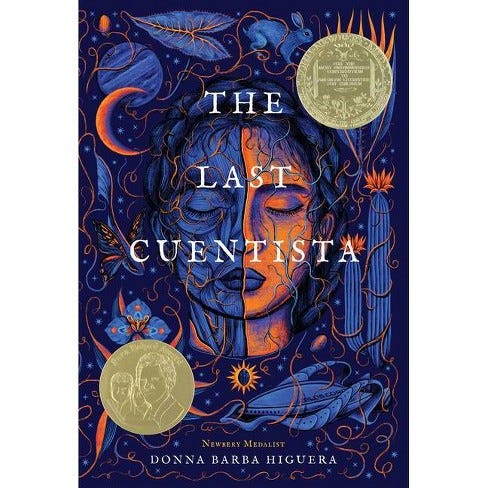Long Live the English Major + writing software, reading recs, & ladies loving books
English majors: we put the 'human' in 'humanities' + writing software, tiktok advice, free feedback, reading recs, women in bookstores & publishing, censorship, writing conferences & awards, cookies
Greetings readers & writers,
You may have heard at the end of February, that Marymount University’s board unanimously voted to cut a number of humanities bachelor’s degrees, including English, {The Washington Post} due to low enrollment. This is not the first time a school has cut humanities programs — due to budget cuts or ‘workforce needs’ {The Washington Post} —but also won’t be the last.
The New Yorker then published the article “The End of the English Major.” It’s a long read, but I recommend reading it. It takes a thoughtful, meandering, wistful look at the waning support for humanities. With a difficult job market, the rise of STEM fields, and the shift to apps and data driven tools, humanities departments are having to justify their existence, both to their administrations and to prospective students.
I love the responses that this group of CUNY Graduate School humanities professors gave in response to The New Yorker article. They point out far more issues than I have space for in this newsletter, including a call for public investment, what role college should have in job training, and how the humanities are crucial in times of crisis.
*climbs on soapbox* This is a personal topic for me. I got my Bachelor’s in an English-adjacent degree: Creative Writing. It was my English and writing classes that helped me process personal crises — grief, mental health, identity—by reading and modeling my work after great writers who’d written around, through, and towards hard things.
And yet I attended Carnegie Mellon, which is usually known for being either a powerhouse engineering and computer science school or an elite art conservatory. But tucked at the back of campus, was Baker/Porter Hall, where I spent many of my days studying writing, literature, and French, and definitely not coasting down the sloped hallways on rolling office chairs. I’ve worked and lived side-by-side with engineers, musicians, computer scientists, artists, you name it. There were lots of ways we were able to collaborate. So maybe that’s why I struggle to connect with this pearl-clutching about the inherent conflict between the humanities and other disciplines.
Do you need an English degree to be a writer? Absolutely not. CMU was an expensive school — still is. I was unbelievably privileged to be able to use my college fund to go there for a humanities degree, which, as the article correctly points out, doesn’t present as many clear (or well paying) job prospects as other disciplines (Case in point: Google and Microsoft recruited on campus; The New Yorker and Random House did not). Students without safety nets are often forced to make choices — about their degrees, classes, and college applications— that steer them away from the “impracticality” of the humanities.
So what’s an aspiring (or former) English major to do?
Remind universities, workplaces, skeptical parents, and ourselves the metrics by which the humanities are practical.
The humanities wake us up. They create bridges between endless historical and institutional knowledge and our society right now. Literally humanities means “the class of studies concerned with human culture.” That’s what English classes and English majors bring to the table — connecting us to our humanity.
Humanities majors excel at having productive, thoughtful discussions; approaching reading, writing, and problem-solving with a sensitive and critical eye; holding multiple understandings of any given idea; analyzing and assessing what a text’s content is trying to teach us or convince us or sell us. Not to mention badass writing, reading, and research skills. And most importantly: we can offer context for our interaction with the written word. You can’t create something new, if you don’t know what’s been done. And how. And why.
So if anyone ever tells you your humanities degree is useless, that you shouldn’t take that beautiful poetry class, or that you can’t go back to school to study literature because it’s not “marketable”, tell them to stuff it.
Ok, fine, tell them you’re developing critical writing and “soft skills” for today’s analytical, content-forward, communication driven, global workplace. Oh, and that you love digging into a subject that makes your brain light up. That’s also enough.
Annnnnd… we’re back! This month, I’m thrilled to host author, editor, and engineer S.B. Divya, author of the new space opera, Meru*, who will be sharing insights into marketing science fiction, reaching a wide audience, and the power of a good excerpt.
For more interviews with newly releasing authors on their marketing and publishing journeys, check out the Book Marketing Now archives. Interested in participating? Fill out this form.
Writing/Marketing Resources
OOPS! I messed up the link last month to this great post about authors using their newsletters creatively to promote their books on Substack. Here it is again with the proper link this time!
Obvious State has a new line of larger literary quote notebooks in stock!
When it comes to writing software, I’m a Scrivener gal. But if you only want to pay for the features you use, you might like Campfire. It has a free tier and affordable modules that include robust templates for world- and character-building, as well as integrated sharing and collaboration options.
Book marketing guru, Jane Friedman’s, stellar blog post “Authors Who’ve Launched Their Careers on TikTok” is a must read for writers interested in the platform.
Ready to dip your toe into receiving writing feedback but don’t know where to start? Writer and newsletter subscriber, Shana Ross, recommends pencilhouse.org. “Free critiques on writing, submissions are open once a month. It’s how I try to do my part for the lit community, and a very uncomplicated benefit for any writer who’s ready to get some feedback.”
Reading Corner
Read in February: The Last Cuentista* by Donna Barba Higuera
A deeply moving YA novel on the power of memory and stories, with a compelling sci-fi premise. There may not be enough world-building to satisfy SFF adult readers, but the pleasurable tropes are there. The true heart of the story is Petra and her irrepressible hope in the face of devastation. Winner of the 2022 Newbery and Pura Belpré awards
Listened to in February: Sorcery and Cecelia: or The Enchanted Chocolate Pot by Patricia C. Wrede and Caroline Stevermer
A delightful epistolary regency rom-com with magic. Cece and Kate are bright, resourceful, inquisitive young women who don’t let magic (or men) stop them from getting to the bottom of a magical mystery. This book was written as a letter game back and forth between the two authors and you can tell just how much fun they were having. Patricia C. Wrede is a gift.
Next up: Everfair* by Nisi Shawl
Industry News
Love to see it: ‘We’re book nerds’: the female friends opening bookshops together {The Guardian}
“Women are now publishing more books than men—and it's good for business” {Quartz}
New British editions of several of Roald Dahl’s works are being decried for updates the publisher has made to Dahl’s text to make it more inclusive. {NPR}
Two significant conferences wrapped this past week: the Association of Writer’s and Writing Programs (AWP) annual conference {Publisher’s Weekly} and the 60th Bologna Children’s Book and Licensing & Trade Fair {Publishing Perspectives}
Tor Publishing Group takes on a new genre by launching Bramble {Tor.com}. The new romantic imprint’s first book will be Jennifer Armentrout’s Fall of Ruin and Wrath* this September.
The star-studded 2023 PEN Literary Awards Ceremony honored “outstanding voices in fiction, poetry, science writing, essays, biography, children’s literature, translation, drama, and more,” including Tina Fey, Vinod Kumar Shukla, and Erika Dickerson-Despenza for career achievement awards.
Chocolate Chip Cookies
What better way to weather the final cold blasts of March than with a warm, brown butter, gluten-free, chocolate chip cookie {Meaningful Eats}? They’re chewy, buttery, nutty, chocolately and I insisted on a double batch so I wouldn’t have to share.
It is almost spring! Re-watch a favorite show. Enjoy some high quality chocolate. Pitch-in to oppose book bans. Call a friend. Write one beautiful line (or ten!).
~Allison
Writer & Marketing Coach
Keep Writing, Keep Connecting! Twitter | Facebook | Newsletter | Website
*Bookshop.org affiliate links. Proceeds go to a rotating list of book-industry related charities!
Like what you read? Thanks so much for your support! Continue to show the love by hitting that heart button, subscribing, leaving a comment, and/or passing it along!








I cheered along to your soapbox essay! I am a fellow English Major and will always extol the benefits of knowing how to write and communicate effectively.
And like you I loved The Last Cuentista! And I've put Sorcery & Cecelia on my "want to read" shelf. Thanks for the recommendation. Perhaps I'll read it while sprinkling chocolate chip cookie crumbs into the center crease. :)